Spotlight on the Moon
In the run-up to the 50th anniversary of the Apollo Moon landing (20 July 2019), OU researchers address the question of whether it is possible to live on the Moon.
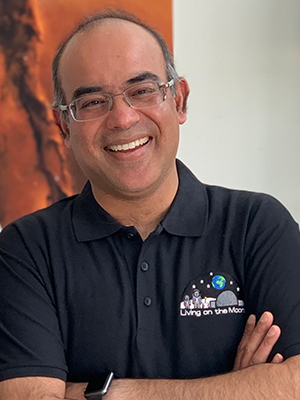
Pioneering the search for water on the Moon
OU researchers led by Dr Mahesh Anand have pioneered the search for water on the Moon for the last 10 years by analysing the Moon rocks returned to Earth by Apollo (NASA) and Luna (Soviet) missions in the 1960s and 1970. The new techniques developed in the laboratories at the OU have found much higher concentrations of water in some rocks than was evident in the original investigations.
Watch the video to find out more:
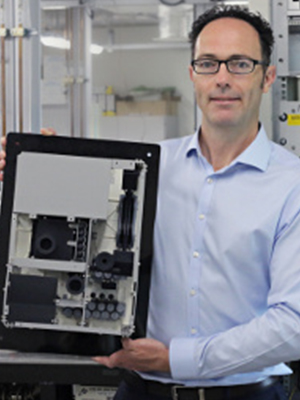
Miniaturising instrumentation to fly to the Moon
The European Space Agency (ESA) is funding OU research to develop new payloads for missions to the Moon.
The team led by Dr Simeon Barber is developing a miniature scientific laboratory called ProSPA to search for water on and below the surface of the Moon on a Russian lunar lander.
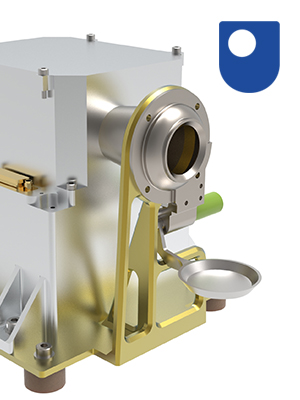
Supporting NASA’s return to the Moon
The OU has been selected to support NASA’s return to the Moon.
OU researchers, led by Dr Simeon Barber, are developing an instrument called PROSPECT Ion Trap Mass Spectrometer (PITMS). It will fly to the Moon in 2021 on a commercial lander as part of NASA’s Artemis programme, and will monitor the gaseous environment near to the lunar surface.
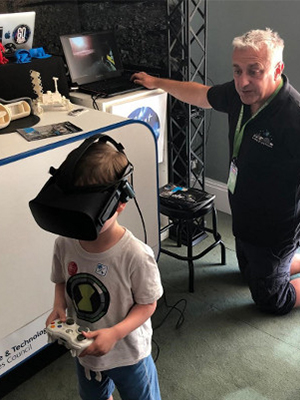
LUVMI Rover
Dr Simon Sheridan, Research Fellow in the OU’s STEM faculty, is developing LUVMI, a small lightweight rover, being designed to explore polar regions of the Moon. It will drive into a Permanently Shadowed Region (PSR), believed to hold vast stores of water. Instruments carried by the rover will look specifically for this water which may be potentially game-changing for future manned missions to the Moon. In the photo, Dr Sheridan is showing a young attendee at the Royal Society Living on the Moon! exhibition how to drive the Rover.
Watch the video to find out more:
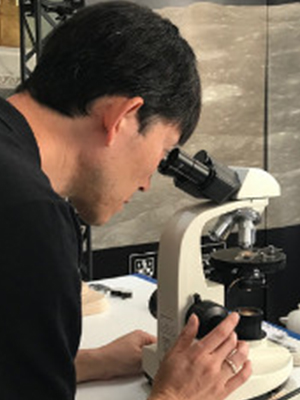
Building on the Moon
A question that all the previous research raises is whether it is possible to live on the Moon.
Dr Sungwoo Lim, OU Research Fellow in Space Sciences, has created a bespoke industrial microwave to melt simulants of lunar soils collected by the Apollo astronauts to see if the microwave heating method is possible to fabricate building components on the Moon.
Contact our news team
For all out of hours enquiries, please telephone +44 (0)7901 515891
Contact detailsNews & articles

OU gets £106k from UKRI for a project to assess AI-enhanced grant peer review
The Open University has secured £106,078 in funding to lead a new research project exploring how AI and large language models can transform the peer review process for research grants.
